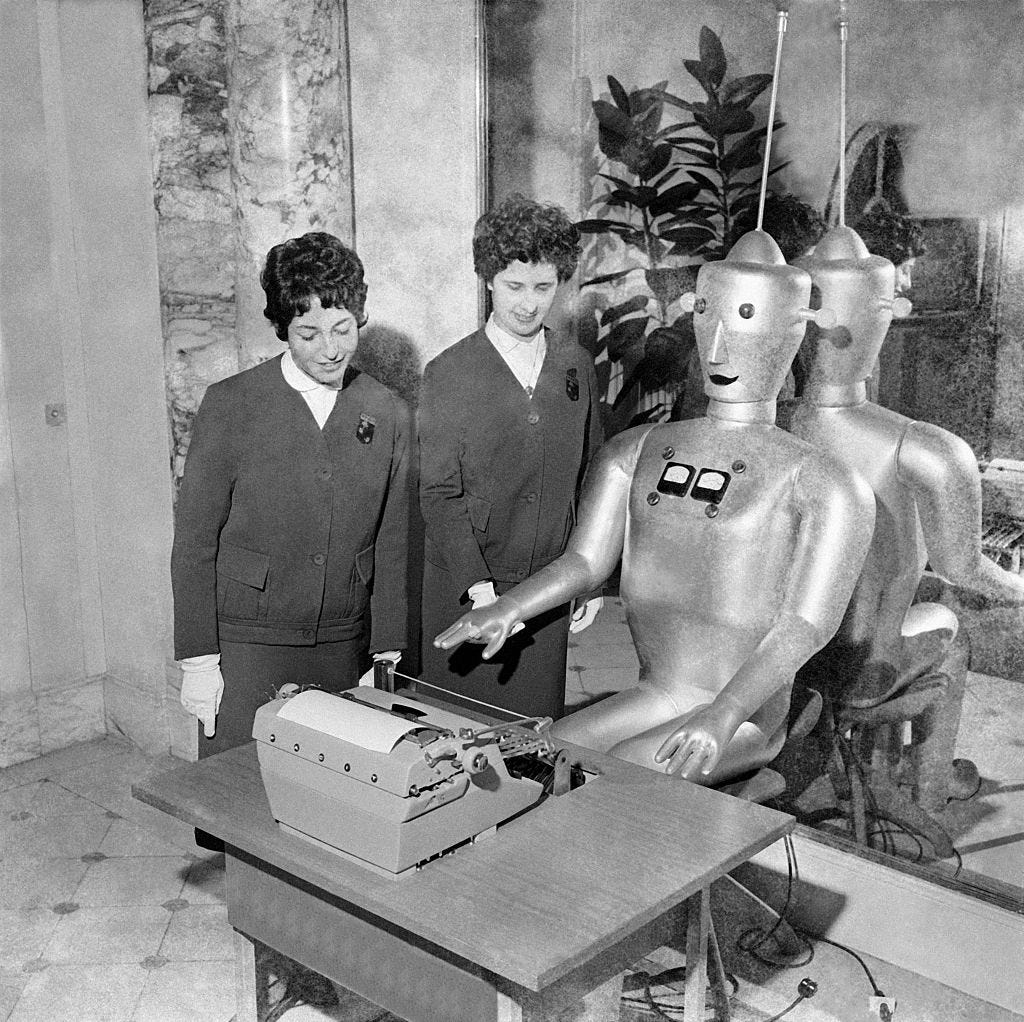R.O. Kwon on writing in the age of A.I.
The novelist talks about why A.I. art misses the point of what humanity and language are all about
What exactly are A.I.s doing when they churn out words? When they ghostwrite our notes and letters, summarize our news, and maybe take over the jobs of those writing the news in the first place — are they writing?
The novelist R.O. Kwon — author of two novels, The Incendiaries and Exhibit, both deeply concerned not just with language but with the way language is rooted in the very human experiences of faith and love and sex and being in a body — doesn’t think so. For Kwon, a writer is a person who writes — that is, a human in a body, who struggles with language. And, in her typically crystal-clear fashion, she made this point the other day in a series of posts.
Since like all writers, we at The Ink have been wrestling with this problem ourselves, we reached out to Kwon to talk more about exactly what writing is and what it means in a moment when the very idea, practice, and profession of writing is being challenged by the existence of machines that can simulate the result of that deeply human activity, if not the experience itself.
A request for those who haven’t yet joined us: The interviews and essays that we share here take research and editing and much more. We work hard, and we are eager to bring on more writers, more voices. But we need your help to keep this going. Join us today to support the kind of independent media you want to exist.
You’ve made this great point about writing being fundamentally the process of a human being struggling with language — something an A.I. doesn’t do and can’t capture, no matter how good it is at simulating what people might produce when they write.
And I wonder whether the rise of A.I. as a threat to writers is part of a bigger problem in the business of turning all the arts into content — making it only about the outcome, making every part of the work just about selling the work. Do you think that is part of what's driving this revulsion on the part of people who write or create as they are faced with the output of LLMs?
I wonder if it comes from a fundamental misunderstanding of what it is that writers and artists are doing. I don't come to writing with answers. I don't sit down to write knowing what's going to happen after two hours, or after five hours. I come with questions, and I get someplace and it's not even an ending. Paul Valery said that a poem is never finished, only abandoned. There's no way to get to where I'm trying to go or even to a way station along the path where I'm trying to get except by the writing itself.
I don't ever feel as though a minute of that wrestling with language, of sitting with the questions, of sitting with negative capability — I never feel as though it's misspent. It’s one of the most memorable ways of being alive I know.
Simone Weil said that “Attention is the rarest and purest form of generosity,” and I'm so attentive when I'm writing, in a way that is harder, I think, than other modes of living. And that's part of what I crave so much from art and from writing.
I'm not so much interested in this idea — that seems to be pretty common — that people can just come up with an idea for a book, and that the A.I. can spit it out. Ideas are cheap. There's no shortage of ideas for our ideas for books. And there's no shortage of words being strung together. I don't go to a book for an idea that can be boiled down that simply.
I go to a book because it feels much closer to why I love a person. A book is such an individual thing. It's so alive. And there's no substitute for a book any more than there is for a person who I love or I'm otherwise fascinated by.
What you’re suggesting is that the writing process is something like a performance. You’re researching, reading, quoting, and the book is something that's left at the end of the performance. But unlike with say, a musician, people don't get to see the writer perform. The thing they experience is printed mechanically, or they read it online. But even so the A.I. process is at best a pastiche of that.
How do you think readers experience your intention, as you move from your idea to your expression? And what don’t they get from something generated via an automated process?






